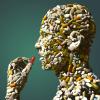Edited by umop 3pisdn, 06 July 2012 - 07:05 AM.

GPC (choline), Uridine, DHA
#1171
Posted 06 July 2012 - 07:04 AM
#1172
Posted 06 July 2012 - 09:55 PM
Thats an idea!
Any other advice on my DHA B E?
After Astragalus?
I'm not familiar with your local area, but do you have a chemist or health food shop you can buy vitamins, etc from? Choosing the right B multi is going to help a lot - the ratios are important. The DHA and E - just start with whatever you can easily get your hands on, but a decent dose of mixed DHA/EPA and mixed tocopherols would be preferred.
Edited by MrHappy, 06 July 2012 - 09:56 PM.
#1173
Posted 07 July 2012 - 09:50 AM
I take between 2 and 3 of these multi vits per day
http://www.solaltech...d&productId=133
depending on how well/what I eat.
NB the Choline.
I could add these for more/better E:
http://www.solaltech...d&productId=121
For DHA/EPA I take 2 to 3 of these:
http://www.solaltech...&productId=5312
They are too low in DHA by the look of it, even though Krill oil is "beter absorbed".
I was going to get brewers yiest to add, but gout is an issue with me, and theres just not enough Uridine in it.
So Im still at a loss for Uridine but will make a plan somehow.
#1174
Posted 07 July 2012 - 10:25 AM
#1175
Posted 07 July 2012 - 10:27 AM
Is this stack better than the racetam stack.
Different effects and you can stack both.
#1176
Posted 10 July 2012 - 04:28 AM
Nutrient Drink Might Boost Memory in Early Alzheimer's: Study
But mixture wouldn't have to meet same strict FDA approval as drugs, expert says
By Steven Reinberg
HealthDay Reporter
MONDAY, July 9 (HealthDay News) -- A daily drink combining several nutrients appears to help people with early Alzheimer's disease improve their memory, a new study suggests.
As Alzheimer's progresses, patients lose their memory as synapses (connections between brain cells) deteriorate, according to background information included in the study. The new drink, called Souvenaid, may actually stimulate the growth of new synapses, said the drink's inventor, Massachusetts Institute of Technology scientist Dr. Richard Wurtman.
But more research is needed before the drink could be made available to the public. And, even then, consumers should exercise caution, said William Thies, vice president for medical and scientific affairs at the Alzheimer's Association.
Nutricia, a division of Dannon, sponsored the study. MIT has a patent on Souvenaid, and Nutricia has the exclusive license on the patent.
"Existing data now suggests that it may be possible to receive something that will sustain cognition in people with Alzheimer's disease with a limited concern about side effects," Wurtman said.
Previous experiments in animals showed that giving them the three compounds included in the drink increased the production of synapses improving brain function, he said.
For the new study, nearly 260 early Alzheimer's patients in Europe drank either Souvenaid or a placebo for six months.
During the first three months of the study, patients in both groups showed improved memory. After that, however, patients taking the placebo had a decline in memory. In contrast, patients taking Souvenaid continued to show improved memory on tests used to assess Alzheimer's patients.
Whether Souvenaid will slow the progression of Alzheimer's isn't known. There is, however, a longer trial going on that might answer that question, Wurtman said. "I don't think it has any effect on the fundamental diseases process, but we'll see," he said.
The report was published in the July 10 online edition of the Journal of Alzheimer's Disease.
The drink combines three ingredients: choline, uridine and omega-3 fatty acids.
Choline is a B vitamin found in meats, nuts and eggs, and omega-3 fatty acids are found in fish, eggs, flaxseed and meat from grass-fed animals. Uridine, which is produced by the liver and kidneys, is also found in some foods as a part of RNA, which helps make protein in the body.
These nutrients, along with other proteins, are essential for making brain-cell membranes that form synapses. To be effective, all three compounds must be given together, the researchers said.
Nearly all patients drank the nutrient cocktail consistently throughout the study, and there were no serious side effects, the researchers reported.
To show the drink's effect on the brain, patients underwent electroencephalography (EEG) throughout the trial. During the study, the brains of those taking the drink shifted from patterns of dementia to more normal ones, the researchers found.
Since EEG patterns reflect the activity of synapses, this result suggests that synaptic function increased with treatment, the researchers said.
An earlier study found that patients with more advanced Alzheimer's did not benefit from Souvenaid, most likely because brains cells had already been lost so new synapses couldn't develop, Wurtman said.
There are as yet no plans to market Souvenaid, so the cost hasn't been established, company spokesman William Green said.
"Souvenaid is a test product in development, which is still undergoing clinical trials," Green said. "No plans for the introduction of Souvenaid to the market -- either in Europe or the U.S. -- have been confirmed. It is probable that any introduction would take place first in Europe."
An ongoing study will evaluate the product over two years. If it appears to have a positive effect, then it may be something that could benefit patients even before definitive symptoms of Alzheimer's appear, Wurtman said.
Thies, of the Alzheimer's Association, is very cautious about the benefits of Souvenaid.
"Medical foods do not have a requirement for FDA premarket approval, but they do have a requirement for having a scientific foundation and some evidence of efficacy," he said. "But they don't have the kind of data we would find for a medication."
That makes it difficult to make a clear-cut statement about the value of the product, he said.
"There isn't a clear diet that prevents you from getting Alzheimer's disease or improves your memory," Thies said.
In addition, medical foods for Alzheimer's most likely won't be covered by insurance, he said.
"You are making a judgment without the protections you have when dealing with a medication," Thies said. "You're going to be making a decision using your own funds and we would advise anybody to make sure they understand what the product offers and make sure they understand what it's going to cost."
#1177
Posted 11 July 2012 - 01:18 PM
It's nice to be ahead of the curve.
#1178
Posted 14 July 2012 - 01:17 PM
Im I correct on that?
Also TAU is more powerful than Uridine/UMP. So it is best to take it sublingually?
#1179
Posted 14 July 2012 - 02:48 PM
#1180
Posted 14 July 2012 - 05:26 PM
#1181
Posted 14 July 2012 - 09:57 PM
I think sublingual UMP works much better for me than TAU. YMMV, as always.
isn't TAU more powerful than UMP even with administered sublingualy? what do you mean by YMMV??
#1182
Posted 14 July 2012 - 10:00 PM
Mg for mg, probably. But then you're taking several standard doses of TAU for one of UMP, and spending a lot more, too.I think sublingual UMP works much better for me than TAU. YMMV, as always.
isn't TAU more powerful than UMP even with administered sublingualy?
You can't take TAU sublingually because it doesn't dissolve in saliva, and since that helps so much with uridine you just get less bang for your back that way.
Edited by Raza, 14 July 2012 - 10:01 PM.
#1183
Posted 14 July 2012 - 10:03 PM
I think sublingual UMP works much better for me than TAU. YMMV, as always.
isn't TAU more powerful than UMP even with administered sublingualy? what do you mean by YMMV??
300mg UMP sublingually found in a popular uridine supplement is more potent then TAU from the same company. YMMV= Your Milage May Vary
#1184
Posted 15 July 2012 - 01:50 PM
Is this stack better than the racetam stack.
Different effects and you can stack both.
how is this different when it comes to effects?
#1185
Posted 18 July 2012 - 09:42 AM
Does anyone know the amount of Uridine in (alcohol free) beer?
Because that might be a tasty and freely available alternative for a Uridine supplement. Thanks!
Edited by Now, 18 July 2012 - 09:42 AM.
#1186
Posted 18 July 2012 - 10:49 AM
Not enough. UMP is cheap and easy to obtain, anywayI haven't read the whole topic, sorry for that.
Does anyone know the amount of Uridine in (alcohol free) beer?
Because that might be a tasty and freely available alternative for a Uridine supplement. Thanks!
#1187
Posted 18 July 2012 - 12:21 PM
#1188
Posted 18 July 2012 - 12:26 PM
#1189
Posted 18 July 2012 - 01:07 PM
#1190
Posted 18 July 2012 - 01:22 PM
This thread is full of people asking questions that have been answered numerous times. Yet the thread is so long I can understand if people are lazy and don't want to go over the entire thing to get a question answered. Maybe a condensed version and a sticky is in order?
Yep; it took me a whole weekend to read this thread!
It would be nice if long threads had a summary, but who would do the summerising?
#1191
Posted 19 July 2012 - 06:07 PM
#1192
Posted 20 July 2012 - 12:55 AM
Were do I get uridine in Europe?
France
#1193
Posted 20 July 2012 - 08:39 AM
Were do I get uridine in Europe?
France
More specifically, here.
Is it possible to combine uridine with antidepressants? A friend of mine is using a tricyclic antidepressant (can't remember which one), and as he suffers from depression, OCD and social anxiety I believe this combo could potentially help him a lot.
#1194
Posted 20 July 2012 - 12:48 PM
#1195
Posted 21 July 2012 - 06:44 AM
http://www.ninds.nih...ine dossier.pdf
Excerpt:
Structural Improvement
UMP treatment increases striatal levels of cytoskeletal proteins (NF-70 and NF-M) in rats.
These structural proteins, which are highly enriched in neurites, have been demonstrated to be
reliable markers of beneficial neurite outgrowth.
Chronic administration of two circulating phosphatide precursors, UMP and the omega-3-fatty
acid docosahexanoic acid (along with choline), to rats increases neuronal levels of the
phosphatides and of specific proteins that characterize synaptic membranes as well as the numbers of dendritic spines in brain.
Neurotransmission
Uridine increases the storage and release of striatal dopamine in rats.
Chronic treatment with uridine (15 mg/kg/day ip for 14 days) decreased spiperone binding in the striatum of young rats,
and increased the rate of recovery of striatal spiperone-labeled dopamine receptors in young but
not old rats in a process attributed to modulation of the steady state and turnover of dopamine D2
receptors.
This uridine regimen also decreased haloperidol-induced changes in striatal
dopamine release.
Similar regimens in two studies decreased amphetamine-induced increases in the release of striatal dopamine.
TAU (6% in the diet for 6 days) increased brain-derived neurotrophic factor (BDNF) in the cortex.
BDNF enhances hippocampal synaptic transmission by increasing NMDA receptor activity, and can be an important mediator of neuroprotection and
memory-enhancement. In mice challenged with kainic acid, a rigid analog of glutamate that
induces hippocampal degeneration, TAU protected hippocampal neurons.
#1196
Posted 21 July 2012 - 02:03 PM
Not sure if it's been discussed but magnesium seems to play an Important role in uridine uptake.
Could be worth It to supplement a little magnesium with this stack.
#1197
Posted 21 July 2012 - 03:42 PM
#1198
Posted 21 July 2012 - 03:50 PM
How effective is uridine? Is it noticeable?
You have a 40 page thread to read and you have to ask that? Seriously? The question has been answered 100's of times in the 40 pages...with references to numerous studies...such as the previous couple posts...all you need do is start reading and learn everything you always wanted to know about uridine but was afraid to ask...
#1199
Posted 21 July 2012 - 03:56 PM
Edited by middpanther88, 21 July 2012 - 03:57 PM.
#1200
Posted 21 July 2012 - 04:10 PM
That's my point. I haven't read all 40 pages. I've read various pages sporadically--and I can't easily understand if it works or not. I just want to know if it's worth it. I want to know ppl's anecdotes.
There seems to be responders and non-responders. I had issues with (for lack of a better term) brain fog, focus, and concentration for years and it had a profound effect in alleviating all those conditions for me. 250mg sublingual UMP leaves me feeling very (for lack of a better term) clear minded, focused, and alert....a calm alertness unlike caffeine. At age 55, it has turned back the clock 20 years on my mental functioning.
Others (non-responders) report no apparent effect.....but my question to them (and to you) is what are you expecting from uridine. If you are young and have no obvious issues with mental functioning, then you very likely will "feel" nothing as it may not get any better than that...in other words, it may keep your brain functioning optimally but will not turn you instantly into Einstein...or make you feel like you're on meth....it's more subtle in the way it works by seeming to "balance" neurotransmitter function....at least from my n=1...and from the numerous studies.
So, the question becomes....what are you expecting of uridine?
edit: One of the more obvious effects I've experienced has been the ability to remain focused in long tedious meetings at work. I used to become mentally fatigued and unable to stay focused and on track for more than 20 minutes into a meeting....I would often find myself wondering what was discussed past the 20 minute marker (probably partially due to my ADD)....but uridine has given me the mental stamina to stay focused in meetings for hours now....which was simply not possible before.
Edited by Hebbeh, 21 July 2012 - 04:19 PM.
Also tagged with one or more of these keywords: choline, uridine, dha, omega-3, epa, ump, tau, b vitamins
54 user(s) are reading this topic
0 members, 54 guests, 0 anonymous users























































